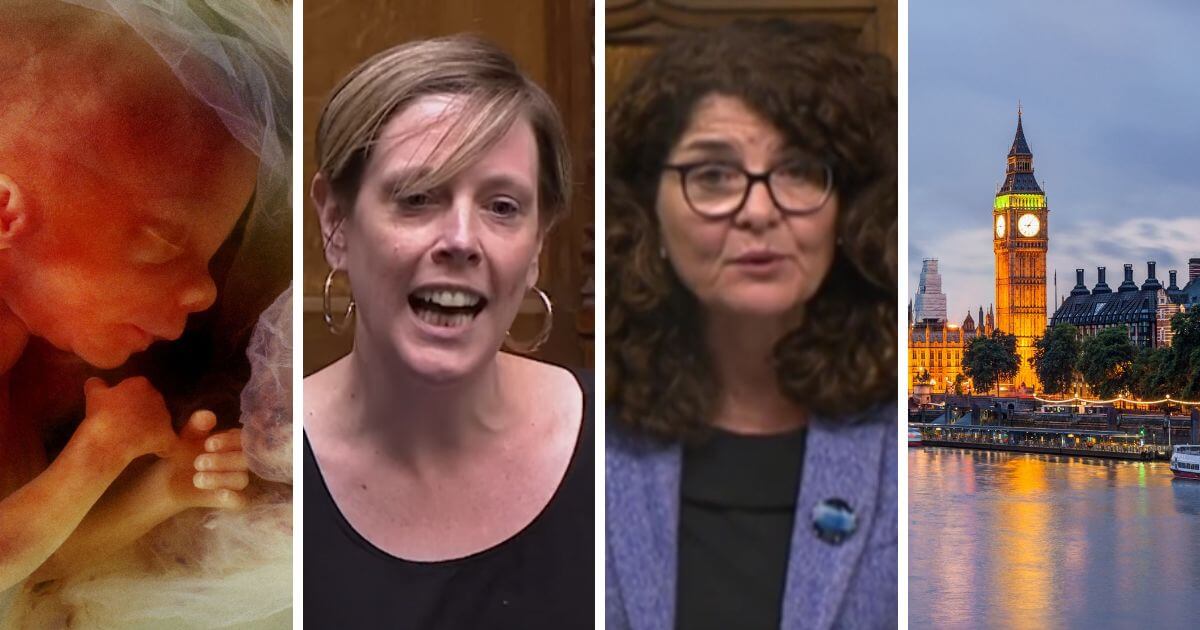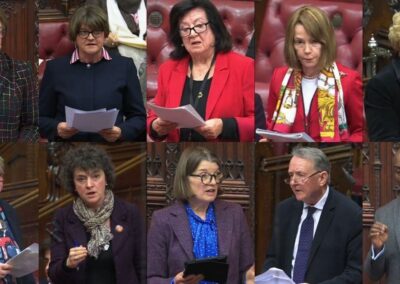Amendments proposing to remove criminal offences that make it illegal to perform a self-abortion at any point right through to birth have been withdrawn.
Yesterday, two extreme abortion up to birth amendments, tagged onto the Government’s flagship Criminal Justice Bill late last year, were debated at Committee stage and subsequently withdrawn without being taken to a vote.
Pro-abortion MP, Jess Phillips, spoke in favour of the amendments saying that abortion should not be thought of as “any more than having a prostate exam”.
She also claimed that the proposed amendments would not change the current 24-week abortion time limit. However, while the MPs behind the amendments, Diana Johnson and Stella Creasy, have both stated that their amendments would not necessarily mean a change to the time limits, such claims ignore the inevitable consequences of their amendments.
Self-abortion up to birth
Both amendments would create a situation whereby women can perform self-abortions with no deterrent regardless of any regulations that may be introduced for abortion providers. These amendments would therefore mean abortion is de facto deregulated for women who acquire abortion pills by misleading abortion providers or through other means, since they would be free to take the pills at any gestation, rendering regulations worthless.
In regards to the current legal time limit in the Abortion Act, Stella Creasy’s amendment itself contains no clear stipulation to include time limits or certain other important safeguards provided by the Act in any subsequent regulations.
The amendment does include the requirement for regulations to introduce new offences to charge third parties who force a woman to undergo an abortion, in order to replace current offences that would be repealed if abortion were ‘decriminalised’.
However, no similar requirement to replicate the current legal time limit in these regulations has been included in the amendment.
All seven of those charged under abortion offences were men
In addition, Phillips also used the small increase in prosecutions for suspected illegal abortions as justification for this radical change in the law and pleaded ignorance as to the cause of this slight increase. However, the likely cause of the slight increase in the number of these cases, as recently partially admitted by Stella Creasy, is because of the ‘pills-by-post’ scheme, which has led to an increase in illegal late-term abortions.
An FOI request to the Metropolitan Police showed that between 1 January 2012 and 31 July 2022, 42 people were arrested under sections 58 and 59 of the OAPA and the ILPA. 34 of those arrested were men; and the seven who were subsequently charged were all men.
Significantly, during the debate, Parliamentary Under Secretary of State, Laura Farris MP, pointed out that in the last six years there has been one conviction.
Serious health concerns
Government data released last year demonstrates that self-performing a late-term medical abortion away from a clinical environment without in-person medical supervision puts the health of women at considerable risk.
The data shows that a medical abortion performed at 20 weeks and over has a complication rate 160 times that of an abortion under 10 weeks. The complication rate is likely to be much higher for women performing their own abortions at home without medical supervision well beyond the current 24-week time limit.
Spokesperson for Right To Life UK Catherine Robinson said, “It is a relief that these extreme amendments have been withdrawn, although it is likely that they, or similar amendments, will be retabled at a later stage”.
“The obvious reason why there were so few prosecutions in the first 160 years following the legal prohibition on abortion established in the Offences Against the Person Act 1861, but an increase in the last few years, is because of the fact that over half of all abortions now happen without any in-person medical oversight”.
“In at-home abortions, since there is no mechanism to establish the gestation of the unborn baby, an unknown number of abortions are now taking place after the 10-week limit. The baby Lily case is the most high-profile of these cases in which a woman had an at-home abortion without medical supervision at around 32 weeks gestation, and it is likely just the tip of the iceberg”.
“Incredibly, even those pushing for a change in the law acknowledge that the move to ‘telemedicine’ abortion – in which there is no in-person consultation with a medical professional – is a likely reason for the increase in prosecutions”.
“The in-person requirement for abortion, which existed up until 2020, acted as a safeguard to protect women and their babies not only from abortion, which becomes increasingly dangerous for women at later gestations, but also from the threat of coercion”.
“Instead of pushing for fewer safeguards through these amendments, MPs who care about women and their babies should be seeking greater supervision and protections, including an ending of abortion outside of a clinical setting”.











